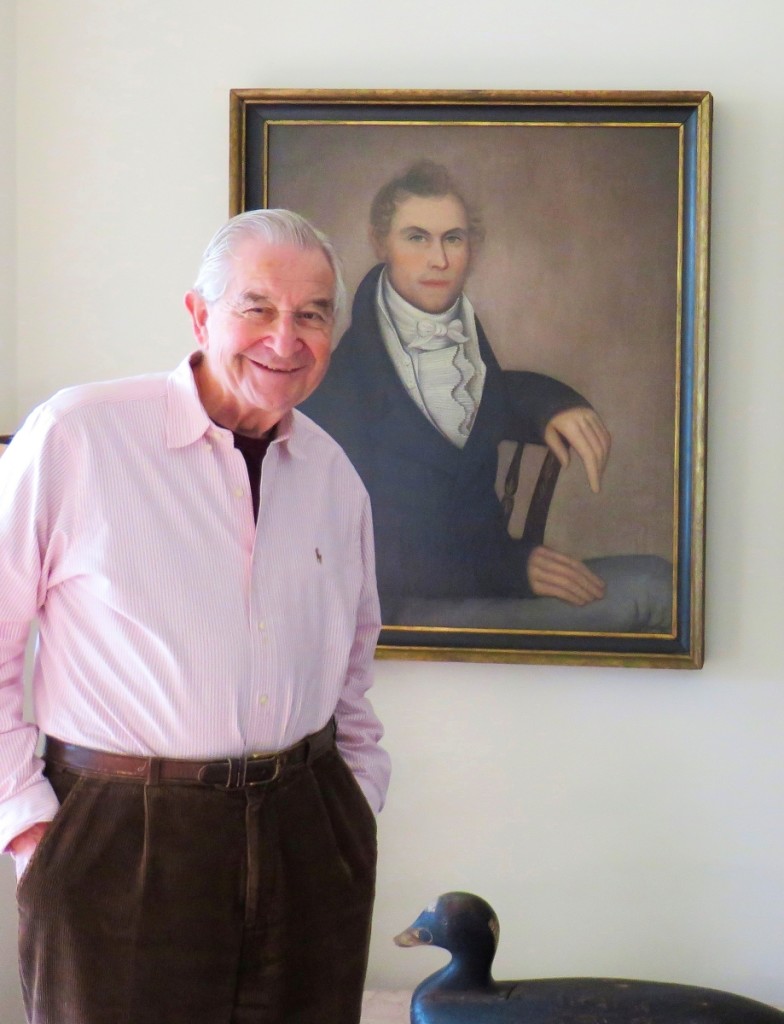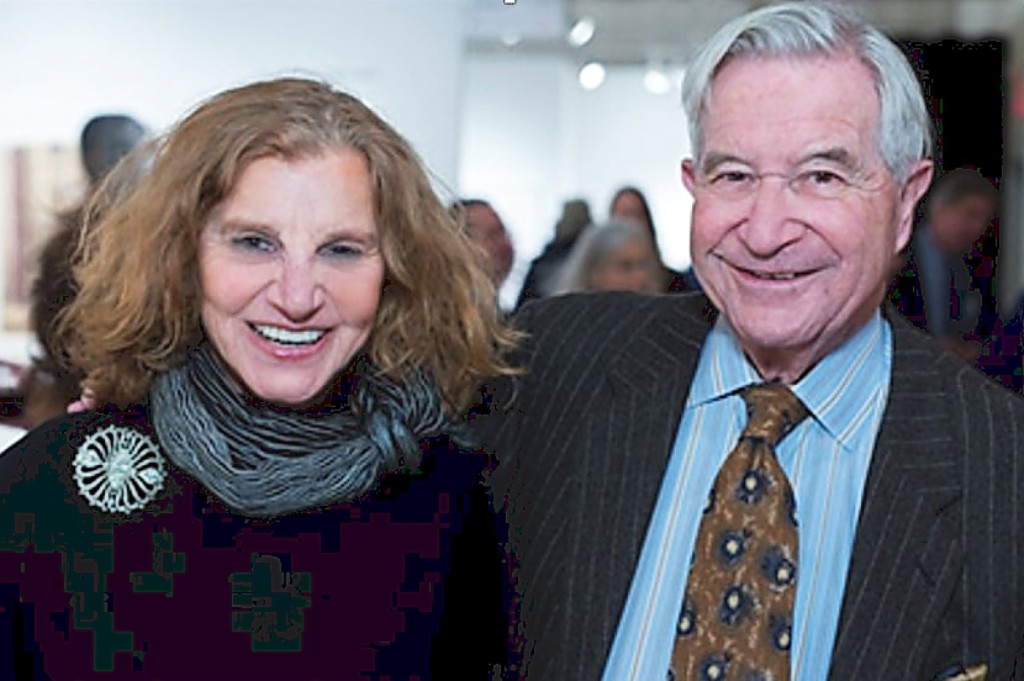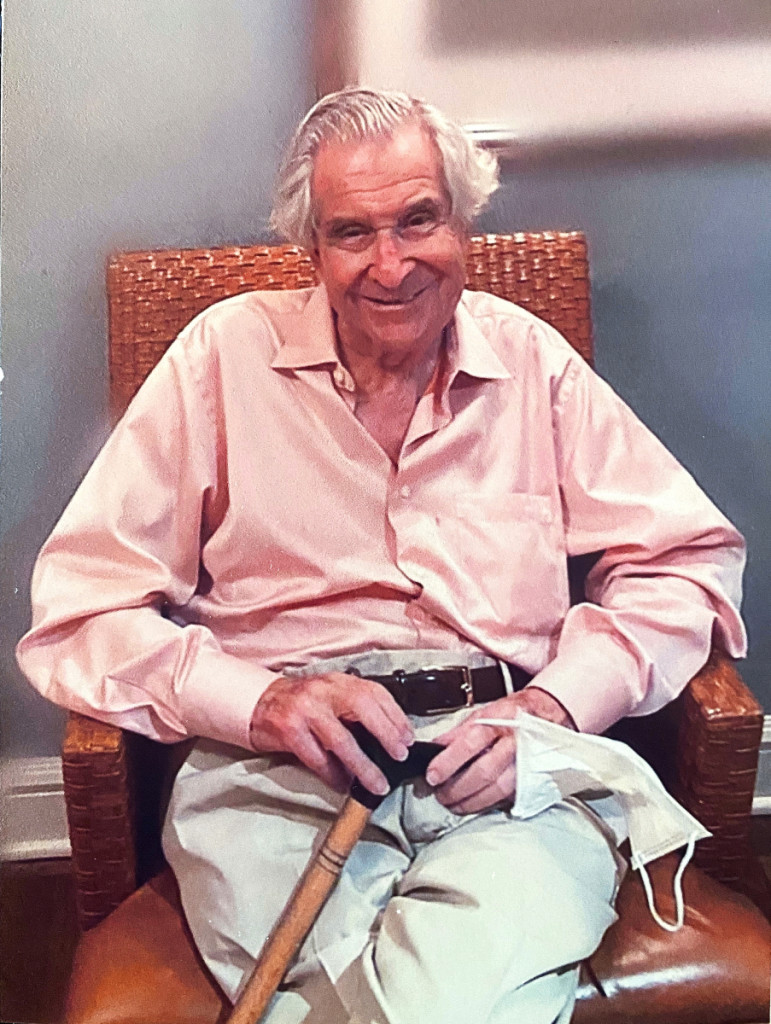By Madelia Hickman Ring
NEW YORK CITY – Josef Emil ‘Pepi’ Jelinek, devoted husband of nearly 62 years to Vera Jelinek, passed away at his Manhattan home on the evening of January 23. The cause of death was complications from idiopathic pulmonary fibrosis.
Jelinek was born on February 12, 1928, in Prague, Czechoslovakia, the son of Frank Jelinek and Olga Frankl. Jelinek’s only sibling was his sister, Gerda Mendham, nee Jelinek, of London, who predeceased him. From 1941-1945, he attended Ellesmere College boarding school in northern Shropshire County, England. His studied at London University’s St Mary’s Medical School focused on internal medicine and orthopedics before he graduated in 1951. He qualified as a doctor at the age of 23 and practiced in various hospitals in England as an internist.
Before coming to the United States in late 1958, Jelinek was a lieutenant in the Royal Air Force from 1953 to 1955, during which time he spent a year in Singapore and a year in Ceylon (now Sri Lanka).
Once in the United States, Jelinek retrained in dermatology at New York University, where he specialized from 1963; he also had a private practice on West 12th Street but continued his affiliation with NYU Skin and Cancer as a part time instructor, eventually rising to Clinical Professor. He gave up his private practice around 2007 and became full time at NYU before retiring around 2017.
Pepi met Vera, who had also been born in Czechoslovakia, on a blind date on December 4, 1959, after she emigrated. She recalled she had been given a list of names by mutual friends and Pepi was fourth but by the time she got to his name, she had had enough of blind dates and canceled. A month or so later, she heard about his wit and intelligence and asked to meet him. With a name like Pepi, she thought he might be from Puerto Rico! She still remembers he walked in holding a bottle of Sandy MacDonald scotch and had a British accent.
“By the end of the evening, we just knew.”
They married six months later.
Passionate folk art collectors, Vera remembers their interest began with a European trip where they saw an exhibit of naïve art, which enchanted them. In 1972, the couple bought a house in the Catskills and began to collect. They purchased their first theorem and first fraktur at the Edith Gregor Halpert sale at Sotheby’s in 1973. From then on, the couple spent more time looking, going to auctions and meeting dealers. Their collection is particularly strong in Nineteenth Century folk portraiture, including the work of Ammi Phillips, Ruth Bascom, Asa Powers, Zedekiah Belknap, Samuel and Ruth Shute and William Matthew Prior, among others. One of Pepi’s favorite works was a portrait of a seated child in a pink dress with a spaniel and coral teething ring by Ammi Phillips, which the couple purchased at Sotheby’s in January 2020; it was also one of the last pieces the couple acquired.
Pepi was president of the American Folk Art Society (AFAS) from 1987 to 1991 and organized AFAS meetings in in Manhattan October 2001 and October 2010. He was a panelist in March 2003 for a symposium between the American Folk Art Museum (AFAM) and Christie’s, and for the AFAM Symposium on Folk Art in September 1997. He also served as chair for the AFAM’s Library Committee.
Jelinek also served on the Board of Trustees for the Fenimore Art Museum in Cooperstown, N.Y.
Works from the Jelineks’ collection were featured in exhibitions at both the Fenimore Art Museum and the American Folk Art Museum. The Jelineks made gifts of art to both museums, including a Micah Williams portrait to the Fenimore that was the first work by the artist to enter the museum’s collection.
Vera plans to live with their collection as long as she can, noting, “I love it as much as Pepi did; it was a big part of our lives.”
Jelinek authored two articles for The Magazine Antiques: “Papers of Record, Four Stylistically Related Watercolor Genealogies from the First Half of the Nineteenth Century” (August 2009), and “Ralph D. Curtis: A Nineteenth Century Folk Artist Identified” (November 2009).
Paul D’Ambrosio, president and chief executive officer at the Fenimore Art Museum, said “Pepi served on the Fenimore Art Museum Board from 2016 to 2021 and was an astute and active board member well into his 90s. Prior to coming on our board, we had been friends for many years through the American Folk Art Society. I would often stay with the Jelineks on my trips to New York in the early 2000s, and they always treated me like family. Pepi and Vera hosted the museum’s Winter Cocktail Party in their Washington Square apartment, with their marvelous American folk art collection serving as a gracious complement to their warmth and hospitality. I always admired Pepi’s keen intellect and keener wit. He will be sorely missed.”
American folk art museum director and chief executive officer, Jason Busch, offered these words: “Pepi Jelinek was a kind and gentle titan in the world of folk art who could captivate an audience with his voice and stories. I fondly remember getting to know him on American Folk Art Society trips over the last 15 years, and then my first time being invited to his home in New York for a delicious dinner made by his lovely wife and inspiring partner Vera.
“Pepi always treated me and others with warm respect, and he immensely enjoyed speaking with enthusiasts of folk art and discussing discoveries of art together. At the American Folk Art Museum, my colleagues, Board of Trustees, and I are deeply grateful to Pepi’s support over many years, as well as his commitment to the field of folk art and its voice in museums.”
Franco Andreucci, a fellow historian and close friend of the Jelineks in Italy who, with his wife, Karen, traveled with the couple and spent time with them in New York, Chicago and Florence, wrote to Vera, “We have great memories of Pepi, and I loved him very much. To me, he was a fascinating mix of the voices of old Europe in the ‘new world.’ And then he was a man of the Renaissance, who loved to live and who moved with pleasure from art to tennis, from good books to music, from traveling to spending time with friends. You know best of all what an extraordinary person Pepi was. And you told me before I knew him, when the two of us were in Rome, in 1972. I’m so very sorry, Vera.”
“He was just such a wonderful friend, and such an interesting man that went way beyond his folk art.” Tom Anderson recalled. “He was a brilliant scholar, he read everything. He was just such a joy to be with, always interesting, a great physician and teacher. He’ll be missed by every one of us.”
Eileen Eglin and Sarah Lewis, who met Vera and Pepi on a boat at Lake Seneca in the summer of 2005, had fond memories of Pepi.
“Pepi did not pursue culture so much as he lived and embodied it in its many forms. His knowledge of music was broad and polymathic. He adored Schubert, and also favored late Mozart. His taste was not limited or retro, though. He liked Shostakovich, too. Literature was an avocation. Pepi read as others breathe, all the time and every day. He always said that he favored style over content, Dostoyevsky over Tolstoy, but he read everything and everyone from every era.
“Pepi loved to engage in serious conversation, touching on topics as diverse as politics, on which he was highly well informed and held strong opinions, world history and current events, art, music and literature and whatever else captured the attention of his giant brain on a given day. He traveled widely with tremendous curiosity and peppered his conversation with arcane and always interesting observations and references. He could exhaust friends decades his junior with the breadth of his knowledge, the incisiveness of his impressions and his sheer stamina!
“No remembrance of Pepi is complete without remarking on his humor. He had an encyclopedic repertoire of amusing anecdotes, jokes and funny asides, many drawn from his fascinating and varied life experiences. Spending time with Pepi was filled with laughter and bonhomie. It was how he saw the world and we were so lucky to see part of it with him.”
Sam and Patty McCullough said, “Pepi was endearing, affable and very funny. When he called you on the telephone, hellos were exchanged, almost always followed by a joke. Pepi knew hundreds of jokes and retained all of them. He loved Vera, his family, his friends and great folk art. He was an exceptional person and will be remembered forever.”
Elizabeth Warren, president of the Board of Trustees of the American Folk Art Museum, and her husband, Irwin, last saw Pepi at Thanksgiving.
“We first met Pepi and Vera many years ago when we were young collectors at an antique show in Westchester or Connecticut. Stephen Score had a booth there, but he had stepped away and left Vera and Pepi in charge, so we bought one of first pieces of folk art – a memorial picture – from them. Pepi was probably the nicest, sweetest person. It’s a huge loss for everybody.”
Pepi and Vera’s younger son, Paul, said, “My mom and dad were incredible friends and lifelong partners. They did so much together and one of their shared passions and perennial loves was collecting folk art, which they did for almost 60 years. Anyone who has been to their apartment can see firsthand how much time and energy went into their collecting – furniture, frakturs and paintings line every wall. During Dad’s last week he talked extensively about the wonderful Ammi Phillips girl that they had recently acquired and about the success of the recent Goodman folk art auction – if he was slightly more mobile, I know he would have been hunting for more things to add to their extensive collection! But equally important for them was the experience of collecting – making friends through their beloved Folk Art Society, connecting with dealers, traveling throughout the United States – shared relationships, intellectual curiosity and deep passion for art are things that made my dad’s life so special and complete”.
In addition to Vera, Jelinek is survived by their two sons, David (Denise) Jelinek, and Paul (Kate) Jelinek, both of Manhattan, as well as grandchildren Angus, 20, and Malcolm, 15, (sons of David), and Stella, 10 (daughter of Paul).
A memorial service will be planned for late spring. Donations may be made in Jelinek’s name and memory to the American Folk Art Museum or the Fenimore Art Museum.







